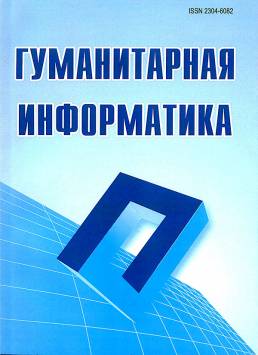SUBJECT, INTELLIGENCE, TECHNOLOGY
The article is devoted to analysis of directions of transformation of subjectivity in the new information and communication environment. In contemporary epistemology, the subject is conceived as an open system: the individual subjectivizes, stores, plays back, and transfers collective, universal social aggregate knowledge, experience, human activities while maintaining and developing the culture and society in the process of transforming activity. "To be a subject" means the ability to carry out synthesis of information from the external and internal world, the ability to combine information about past, present and future, and transform knowledge, ensuring successful goal-setting activities. However, information society technologies, strengthening and expanding of the intellectual capacity of a man, became a challenge for subjectivity and natural intelligence. New information and communication technologies, created by the humans, substantially transform human cognitive Toolkit and change the structure of cognitive space. The process of thinking becomes technologically advanced; technological perception of the world requires samples of rational and purposeful activities. There is a need for new educational technologies, which can retain and develop human intelligence in the conditions of information society. In the article it is shown that for the humanitarian sphere, it is essential to design and construct interactive information and communication environment that combines live communication and e-learning. This environment should be designed as an open system embedded in the culture, which involves the intensification of development of interactive e-culture and network structures of companies. Dialogical structure of the knowledge is the universal basis of understanding the mechanism of social interaction. The article analyzes the specificity of applying the epistemological principles of the unity of individual, community (micro-social) and social (macro-social) entities and the unity of consciousness, the unconscious and activities in the new ICT environment. The necessity of development of cognitive culture of a personality is presented as an effective technology to convert information into knowledge in accordance with the purposes of human activity.
Keywords
cognitive culture, humanitarian education, information and communication technologies, intelligence, subject, epistemology, когнитивная культура, гуманитарное образование, интеллект, информационно-коммуникационные технологии, субъект, эпистемологияAuthors
| Name | Organization | |
| Elena A. Nikitina | Moscow Technological University | nikitina@mirea.ru |
References
